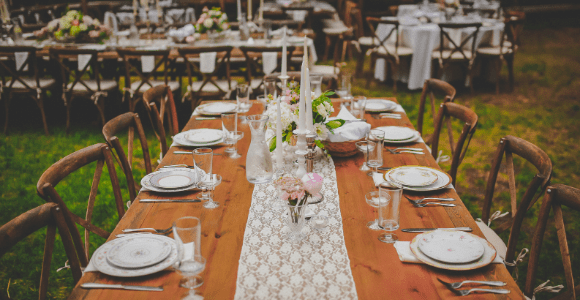Welcome readers! Please subscribe through the buttons on the right if you enjoy this post.

In Matthew’s gospel, we read this story,
“Jesus spoke to them again in parables, saying: ‘The kingdom of heaven is like a king who prepared a wedding banquet for his son. He sent his servants to those who had been invited to the banquet to tell them to come, but they refused to come. Then he sent some more servants and said, “Tell those who have been invited that I have prepared my dinner: My oxen and fattened cattle have been butchered, and everything is ready. Come to the wedding banquet.” But they paid no attention and went off—one to his field, another to his business. The rest seized his servants, mistreated them, and killed them. The king was enraged. He sent his army and destroyed those murderers and burned their city. Then he said to his servants, “The wedding banquet is ready, but those I invited did not deserve to come. So go to the street corners and invite to the banquet anyone you find.” So the servants went out into the streets and gathered all the people they could find, the bad as well as the good, and the wedding hall was filled with guests. But when the king came in to see the guests, he noticed a man there who was not wearing wedding clothes. He asked, “How did you get in here without wedding clothes, friend?” The man was speechless. Then the king told the attendants, “Tie him hand and foot, and throw him outside, into the darkness, where there will be weeping and gnashing of teeth.” For many are invited, but few are chosen.’” (Matthew 22:1-14)
The stories in Matthew’s gospel were intended to teach their audience something about the just future, the vision for a just human community, that this gospel bases on the teachings of Jesus.
This story progresses in a specific order.
First, the king invites guests to his son’s wedding. These guests would have been those whose social standing warranted such an invitation. Their invitation would not have been universal but for those who belonged to a society shaped by exceptionalism and privilege. I also cannot overlook the patriarchal character of this story about a “king” feasting for his “son” and a social structure that includes slaves and a master. Despite what’s problematic in this story, is there some kernel of truth in it that may speak to us in our contemporary context and justice work?
Let’s see.
When those first invited refuse their invitation, the king’s invitation becomes much more inclusive. Everyone is now invited.
“Then he said to his servants, ‘The wedding is ready . . . Go therefore into the main streets, and invite everyone you find to the wedding banquet.’”
Everyone? Does everyone get invited? Yes, and Jesus makes sure to add, “the bad as well as the good.” This invitation is generously and extravagantly inclusive.
But the story does not remain so.
“But when the king came in to see the guests, he noticed a man there who was not wearing a wedding robe, and he said to him, ‘Friend, how did you get in here without a wedding robe?’ And he was speechless.”
I used to interpret this parable differently than I do today. I used to see this parable as “Olly Olly oxen free,” a story where everyone gets let in, penalty-free. But when we read this parable from the perspective of those oppressed, subjugated, or pushed to the margins of society, certain things begin to stand out.
We’ll consider these insights next.













